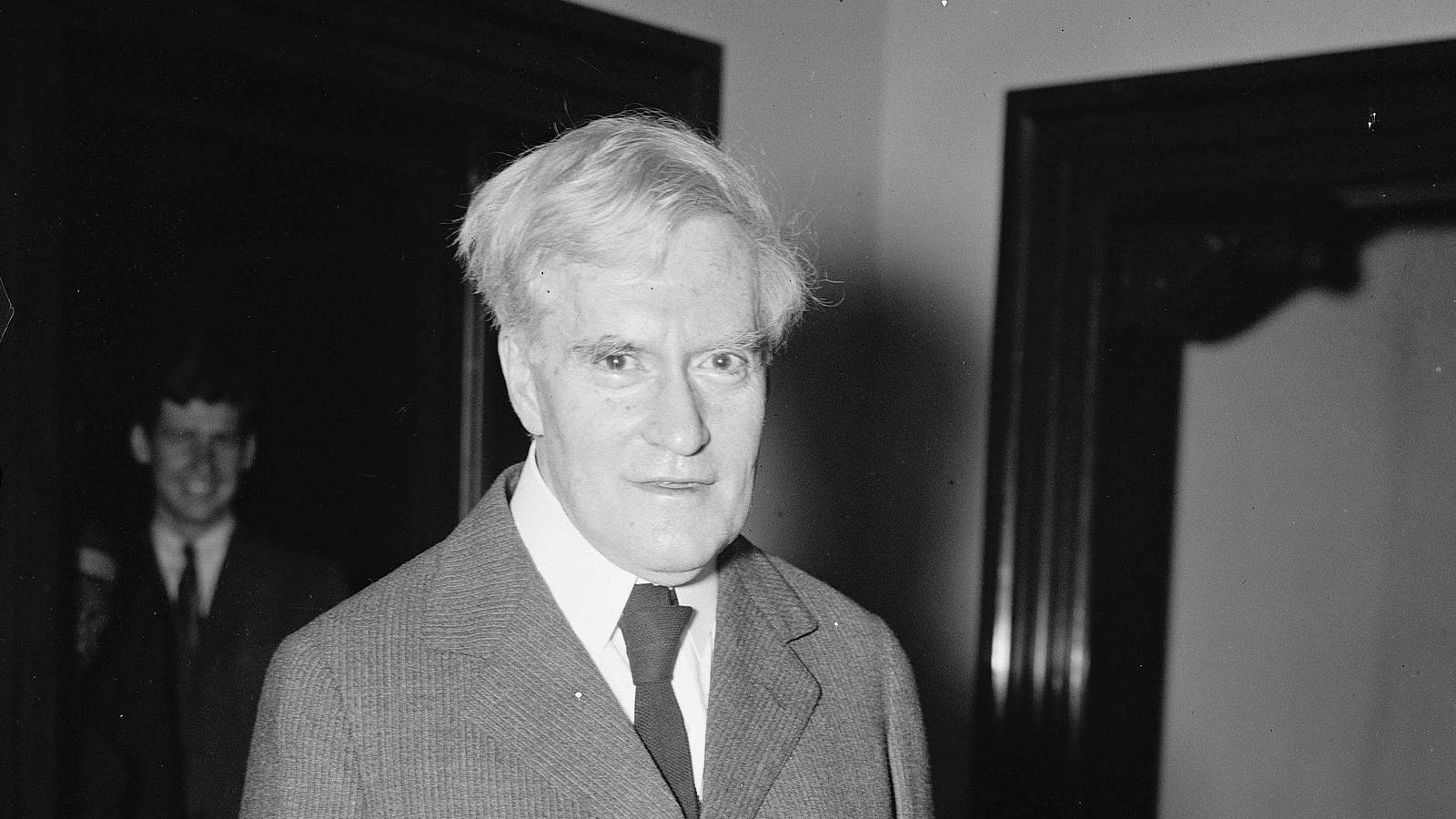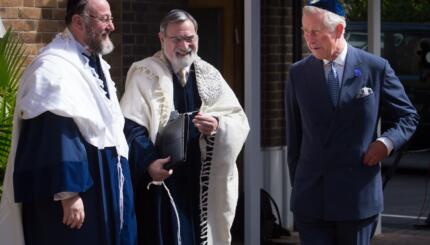In 1932, President Herbert Hoover appointed Benjamin Nathan Cardozo to the Supreme Court of the United States. Cardozo was the second Jew, after Louis D. Brandeis, to serve on the nation’s highest court. Previously, Cardozo served as a judge on the New York State Supreme Court and as Chief Judge of the Court of Appeals.
The Cardozo family is one of America’s oldest and most distinguished. Cardozo forebears were numbered among the founders of Congregation Shearith Israel, the oldest congregation in North America and the central social institution of New York’s community. One 18th century forebear served as the first Jewish incorporator and trustee of Columbia University; another helped found of the New York Stock Exchange in 1792; and the poet Emma Lazarus was his cousin.
Born in 1870, Benjamin Cardozo was the son of Judge Albert Cardozo and Rebecca Nathan. Albert Cardozo served as Vice President and trustee of Congregation Shearith Israel and Benjamin celebrated his there. The family lived a well-mannered, upper-class life, the kind that might have been depicted in an Edith Wharton novel. However, the Cardozo family image suffered a major setback when Albert, a Tammany Hall appointee to the bench, resigned his judgeship in 1872 just as a legislative committee was about to impeach him for nepotism.
Despite this taint of notoriety, Benjamin chose to enter the law, his father’s profession, and he proudly–one might say defiantly–entered his father’s law firm upon graduation from Columbia University Law School. The young Cardozo distinguished himself as a commercial law litigator, and soon other attorneys brought their most difficult cases to him for assistance. Shy and reserved in his personal life, in the courtroom Cardozo was a powerful orator. Above all, perhaps driven to redeem his father’s disgrace, Cardozo developed a reputation of the utmost integrity.

Help us keep Jewish knowledge accessible to millions of people around the world.
Your donation to My Jewish Learning fuels endless journeys of Jewish discovery. With your help, My Jewish Learning can continue to provide nonstop opportunities for learning, connection and growth.
After his bar mitzvah, Cardozo stopped attending religious services. In later life, he described himself as an agnostic, but he never failed to identify himself as a proud Jew and remained a Jewish traditionalist in many respects. He refused to allow pork and shellfish into his home and maintained the family pew at Shearith Israel throughout his life. In 1895, at age twenty-five, he opposed the elimination of gender-segregated seating in the synagogue, a change that would have altered the Sephardic Orthodox minhag. Cardozo delivered a “long address,” according to a member of the congregation, which was “impressive in ability and eloquence,” and contributed to keeping the traditional seating.
Other than serving as a trustee of Columbia University, all of Cardozo’s volunteer activities were within the Jewish community. At a time when “polite” anti-Semitism was rampant among the New York social elite, and Jews were virtually excluded from venues such as the New York Athletic Club and the Union League Club, Cardozo joined the Judean Club, an association “designed to gather together a body of cultured Jewish gentlemen … to advance the intellectual and spiritual aspirations of the Jews.” Cardozo also served on the board of the American Jewish Committee, and despite his personal uncertainty about the cause, agreed to join the Zionist Organization of America. He wrote:
I have signed the application with some misgiving, for I have confessed … that I am not yet an enthusiast. But today, the line seems to be forming between those who are for the cause and those who are against it, with little room for a third camp. I am not willing to join those who are against, so I go over to the others.
In the 1928 presidential contest, Cardozo backed Democratic candidate Al Smith against Herbert Hoover. He did so as a Jew. While he respected Hoover, Cardozo wrote to a cousin that in the Republican campaign “will be found all the narrow-minded bigots, all the Jew haters, all those who would make of the United States an exclusively Protestant government. … The defeat of Smith will be acclaimed as a great victory by … the friends of obscurantism.” Ironically, the victorious Hoover appointed Cardozo to the Supreme Court four years later.
Throughout his public career, Cardozo tried to never to let his Jewish identification influence his judicial reasoning. For example, although an avowed personal opponent of Hitler’s regime, he was distressed when, in 1935, New York City magistrate Louis Brodsky dismissed assault charges against five of six Jewish defendants who stormed the German ship “Bremen” in New York harbor as it flew the Nazi flag. Brodsky wrote in his opinion that the lawbreakers were justified because the flag provoked them, even though the U. S. government recognized Germany’s National Socialist regime. Cardozo wrote to a family member of Brodsky’s decision:
What is the use of striving for standards of judicial propriety if [one] condone[s] such lapses! It would have been bad enough if [Brodsky] had been a Gentile; but for a Jew it was unforgivable. Now our traducers will say–and with some right… –that these are the standards of the race.
Professor Roscoe Pound of Harvard considered Cardozo one of the ten best legal minds in American history, and his writings and opinions contributed greatly in advancing American common law. As a jurist and committed Jew, Justice Cardozo brought honor to the United States and to his people.
Chapters in American Jewish History are provided by the American Jewish Historical Society, collecting, preserving, fostering scholarship and providing access to the continuity of Jewish life in America for more than 350 years (and counting). Visit www.ajhs.org.
mitzvah
Pronounced: MITZ-vuh or meetz-VAH, Origin: Hebrew, commandment, also used to mean good deed.

Help us keep Jewish knowledge accessible to millions of people around the world.
Your donation to My Jewish Learning fuels endless journeys of Jewish discovery. With your help, My Jewish Learning can continue to provide nonstop opportunities for learning, connection and growth.



